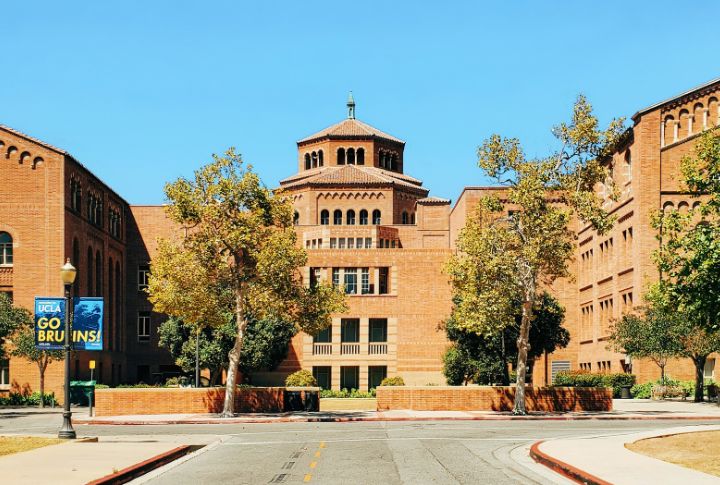
These days, looking for the perfect public college can be overwhelming. There are numerous options with lots of pros and cons to compare. So, we’ve rounded up 20 of America’s top public universities that offer excellent academics and strong career prospects for all kinds of students. Read on to find out which school might be the ideal fit for you.
University Of California, Los Angeles (UCLA)
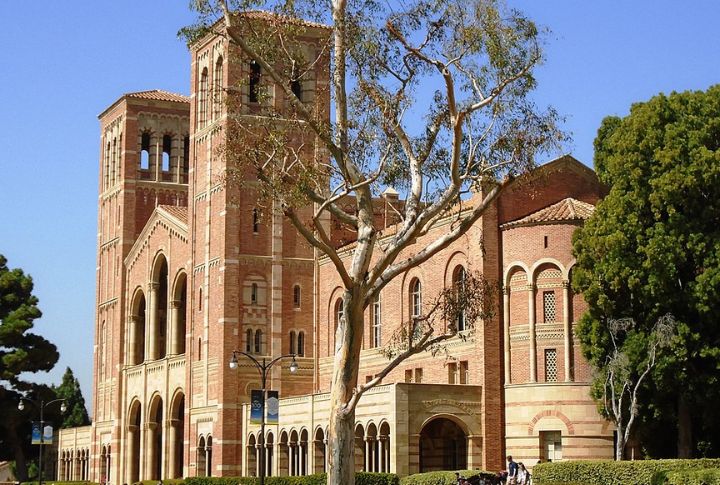
Yearly Tuition Fees: $13,804 – $43,012
Employment Rate: 92%
UCLA offers you top programs across the arts, engineering, health sciences, and social sciences. Its vibrant campus buzzes with clubs and Big Ten athletics. Located in a major city, it connects you to rich internship and career options in entertainment, tech, healthcare, and many other fields, attracting ambitious students worldwide.
University Of California, Berkeley

Yearly Tuition Fees: $14,226 – $44,008
Employment Rate: 91%
UC Berkeley offers you top-tier programs in STEM, computer science, engineering, and social sciences. The campus runs with political energy and intellectual challenge. You’ll benefit from cutting-edge research and interdisciplinary collaboration that prepares you to excel in competitive and innovative fields worldwide.
University Of California, San Diego
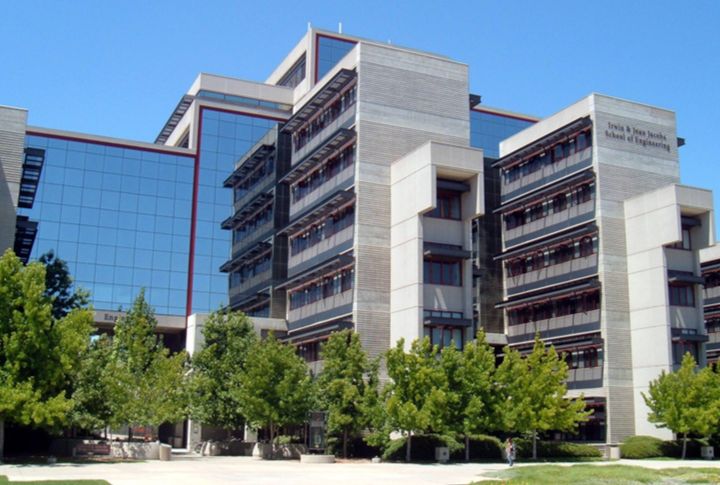
Yearly Tuition Fees: $14,679 – $44,589
Employment Rate: 90%
UC San Diego provides you with strong programs in science and medicine, paired with a research-driven campus culture. Its unique six-college system offers you varied academic approaches. Located near a thriving biotech hub, UCSD connects you to excellent internships and career opportunities in rapidly expanding industries.
University Of Michigan, Ann Arbor
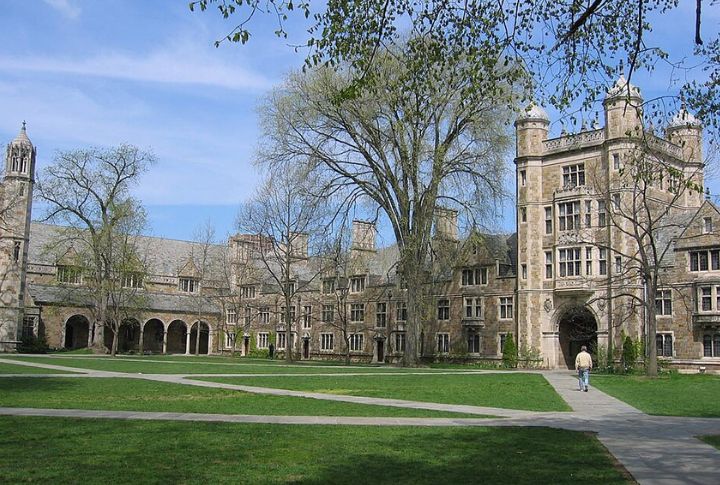
Yearly Tuition Fees: $17,800–$57,000
Employment Rate: 95%
At this university, you get exposed to a space built for excellence, where business, engineering, computer science, and public policy lead the way. With over $1.7 billion invested in research, 1,600+ student clubs, and global career connections, it’s a hub of opportunities in a town that never stops inspiring.
Georgia Institute Of Technology, Atlanta
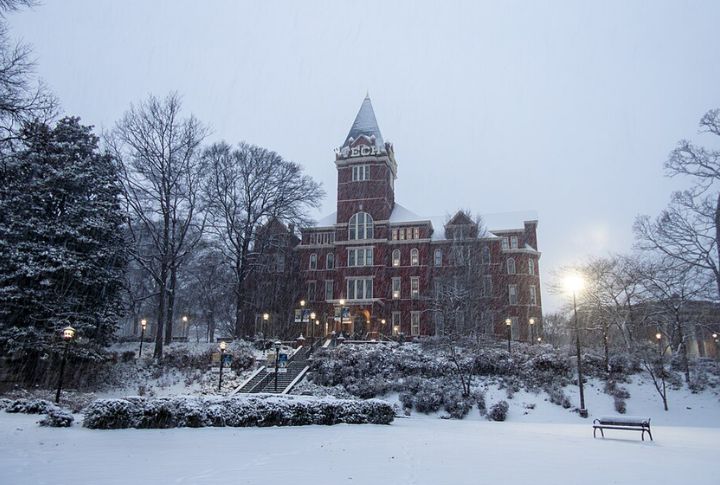
Yearly Tuition fees: $10,512 – $34,572
Employment rate: 96%
Georgia Tech is situated in dynamic Atlanta, providing you with a world-class engineering and science program. Here, you can expect a rigorous academic environment focused on innovation and research, with significant industry collaboration. The university will equip you with highly marketable skills, and graduates are incredibly sought after by top tech firms.
University Of Florida, Gainesville

Yearly Tuition fees: $6,381 – $28,659
Employment rate: 66%
The University of Florida stands as a leading public institution with a high-quality education across diverse fields like social science, business, engineering, and health sciences. It is a research powerhouse and significantly contributes to various advancements. If you get in, you will join a large and diverse student body, sharing a strong sense of Gator pride in its sustainability-focused space.
University Of Virginia, Charlottesville
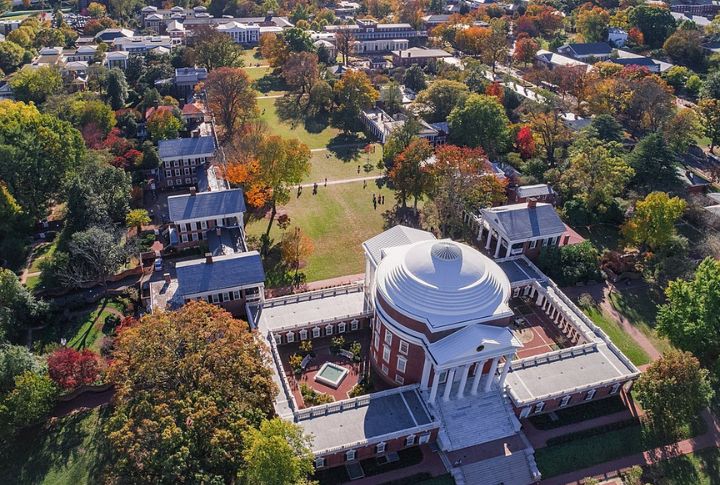
Yearly Tuition Fees: $23,000–$55,000
Employment Rate: 93%
Founded by Thomas Jefferson, the University of Virginia blends academic excellence with iconic history. You’ll study in a UNESCO World Heritage campus, thrive under a trusted honor system, and explore top-tier programs like law, medicine, business, arts, and sciences. Plus, there’s a tight-knit first-year residential community built for growth.
University Of Wisconsin-Madison
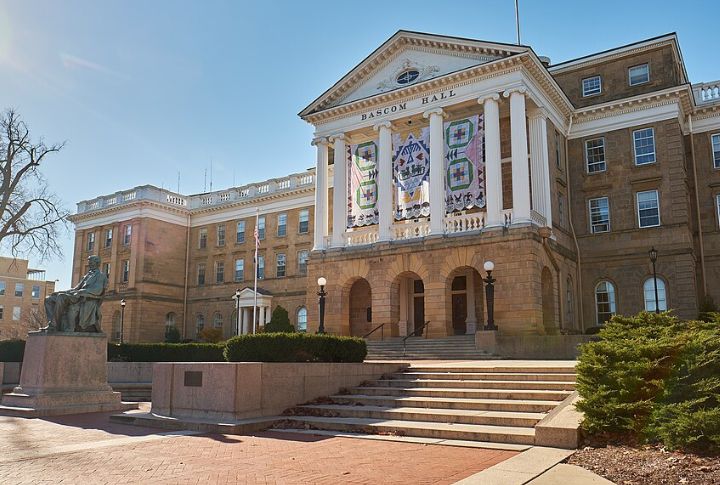
Yearly Tuition Fees: $11,000–$40,000
Employment Rate: 93%
At UW-Madison, you’re surrounded by lakes, research breakthroughs, interactive programs, and unmatched energy. Dive into arts, agriculture, engineering, or journalism while joining hands-on projects that actually matter. With early research access and a vibrant academic life, your undergraduate years can become the launchpad for meaningful work and real-world impact.
University Of Texas, Austin
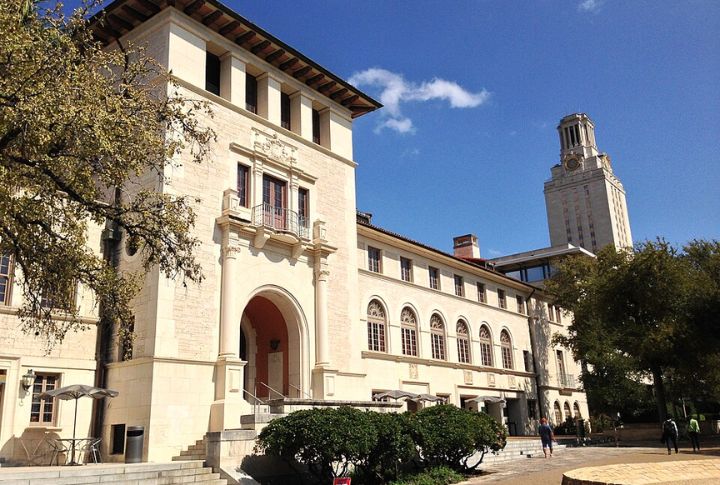
Yearly Tuition fees: $11,688 – $44,908
Employment rate: 75%
The University of Texas has stellar programs in business, communication, engineering, and computer science. Situated in a thriving city renowned for its tech and music scene, you’ll find top internship and job prospects. Strong school spirit and competitive athletics further enrich your experience at this highly-regarded institution.
Texas A&M University, College Station

Location: College Station, Texas
Yearly Tuition Fees: $13,000–$40,000
Employment Rate: 93%
At Texas A&M, there are top-ranked programs in engineering, agriculture, business, and veterinary medicine. What sets it apart? It’s the school spirit, powerful research in energy and cybersecurity, great faculty, and also, a global alumni network—the Aggie Network—that opens doors and builds careers.
Florida State University, Tallahassee
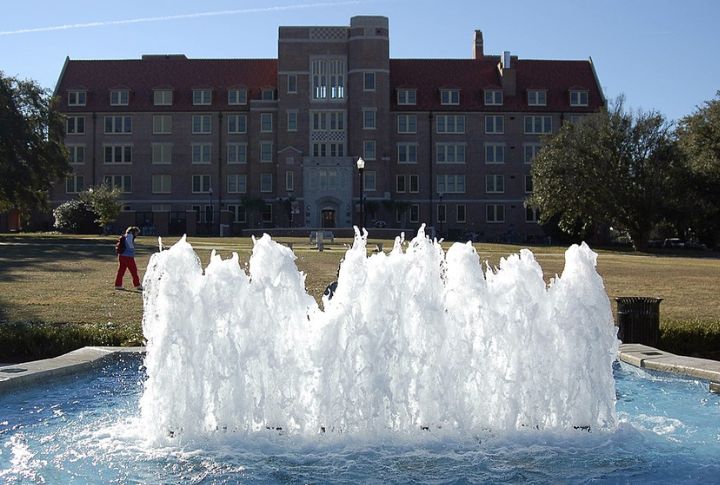
Yearly Tuition Fees: $5,700–$18,800
Employment Rate: 74%
Florida State University delivers a dynamic mix of academics, criminology, arts, and athletics. With standout programs around film and music, this college offers great opportunities to explore. Campus life runs with tradition, programs, sports, and support systems, all designed to help you thrive, both inside the classroom and beyond.
William & Mary, Williamsburg, Virginia

Yearly Tuition Fees: $23,000–$46,000
Employment Rate: 94%
At William & Mary, you get a “Public Ivy” education in a historic setting. Professors will know your name, research will start early, and classes will stay small. Many students enjoy the personalized attention, world-class academics, and a community that feels like a private liberal arts college without the private school price.
University Of Washington, Seattle
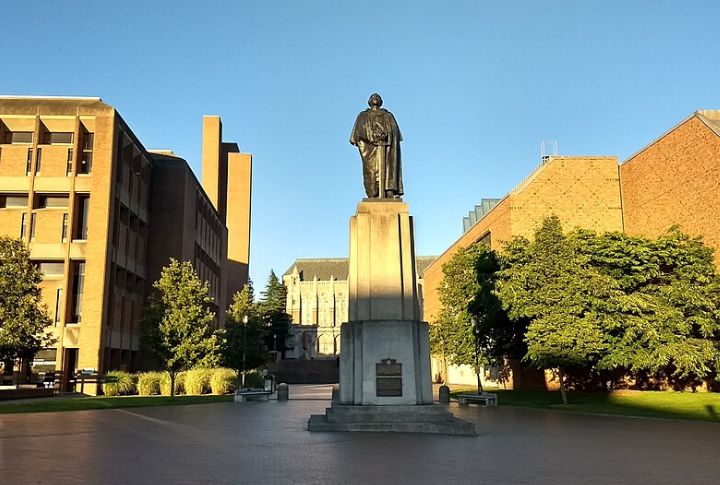
Yearly Tuition Fees: $12,600–$41,000
Employment Rate: 93%
Right in Seattle’s tech-driven landscape, the University of Washington connects you to real-world internships and high-demand careers. There are powerhouse programs in computer science, engineering, and health. Moreover, with strong ties to Microsoft and Amazon, this university comes with direct access to prospects and a global community that drives your career forward.
Purdue University, West Lafayette, Indiana
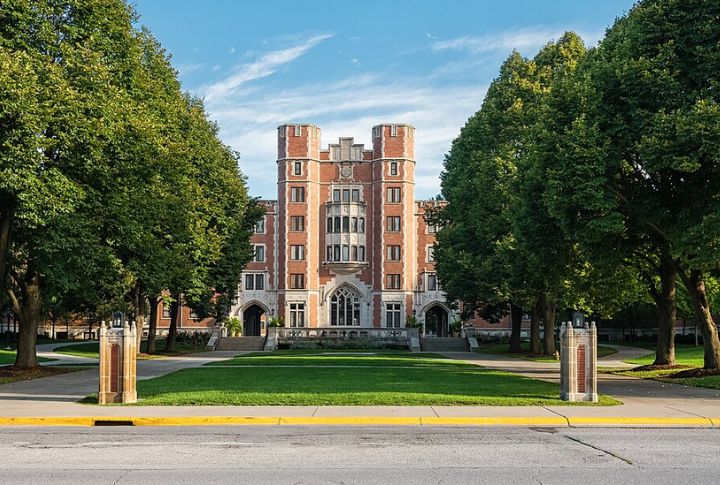
Yearly Tuition Fees: $10,000–$28,000
Employment Rate: 94%
Purdue offers a direct path into top business, engineering, aviation, and agriculture careers. Its hands-on learning and research in aerospace and defense draw global attention. You’ll graduate ready to solve real problems and lead innovation. Many employers value Purdue grads for their sharp skills, work ethic, and readiness to perform from day one.
The Ohio State University, Columbus
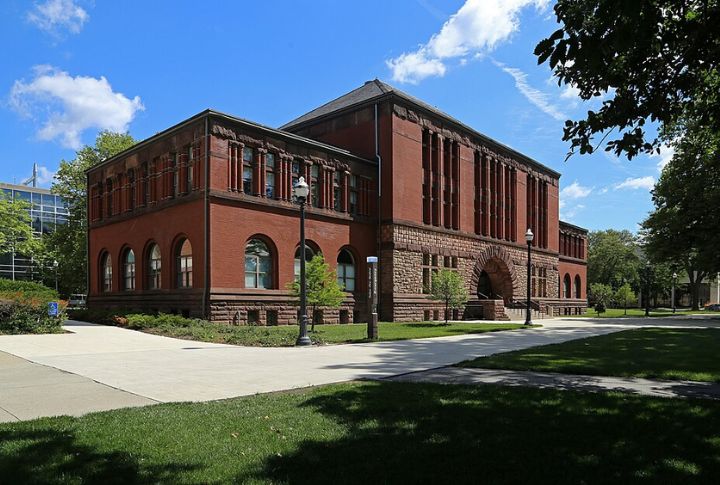
Yearly Tuition Fees: $12,000–$38,000
Employment Rate: 93%
Students enjoy growth opportunities every year at Ohio State’s massive space. For those who want to build a career in business, engineering, marketing, or health sciences, this university offers top-ranked programs. The Big Ten energy and great student resources make Ohio State a gem for ambition and career success.
Pennsylvania State University (Penn State), University Park
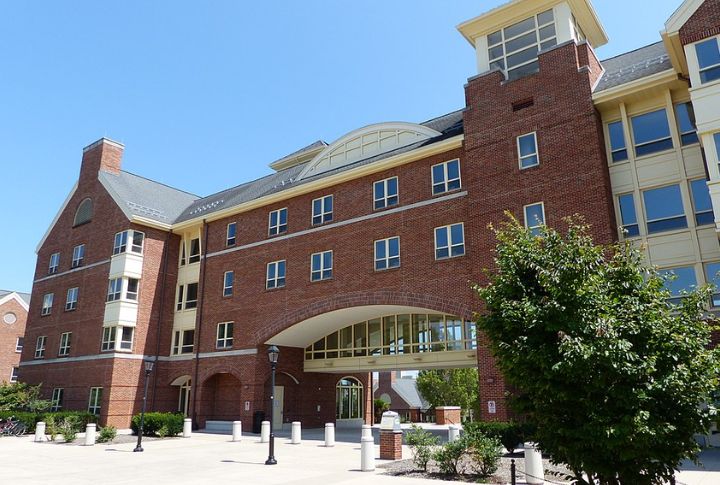
Yearly Tuition Fees: $19,000–$38,000
Employment Rate: 93%
Penn State gives you access to over 275 majors, a powerful alumni network, interactive programs, and the best school spirit. It’s famous for its leading courses in engineering and business. Moreover, with a global reach around elite athletics, it’s a place where education meets passion—whether you’re on campus or online. Penn State’s research ecosystem also offers endless possibilities.
North Carolina State University, Raleigh

Yearly Tuition Fees: $9,100–$31,900
Employment Rate: 94%
North Carolina State University puts you in the heart of innovation. Its top-tier art, engineering, agriculture, and design programs connect directly with industry leaders in the Research Triangle. The academia buzzes with energy—student clubs, ACC sports, and career-building internships make every semester count. If you have big ideas, this college can be your start for bold futures.
University Of Pittsburgh, Pennsylvania

Yearly Tuition Fees: $21,000–$36,000
Employment Rate: 93%
This leading public research university offers health sciences, architecture, engineering, and computer science, opening doors to real-world careers. With direct access to UPMC, hands-on experience in medicine and research starts here. The city-campus setting provides internships and a tight-knit community that keeps you inspired long after graduation.
University Of Illinois Urbana-Champaign, Champaign
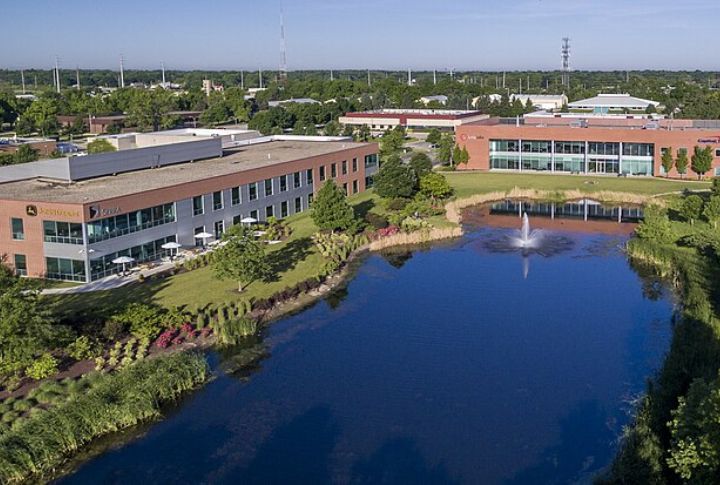
Yearly Tuition Fees: $17,138 – $40,320
Employment Rate: 93%
Joining this university means high-paying jobs in engineering, computer science, business, and agriculture. With world-class labs and supercomputing breakthroughs, this university prepares you for a career-driven experience shaped by innovation and real-world discovery. The alumni network here also opens doors across various industries, giving you a competitive edge before graduation.
United States Military Academy (USMA), West Point, New York
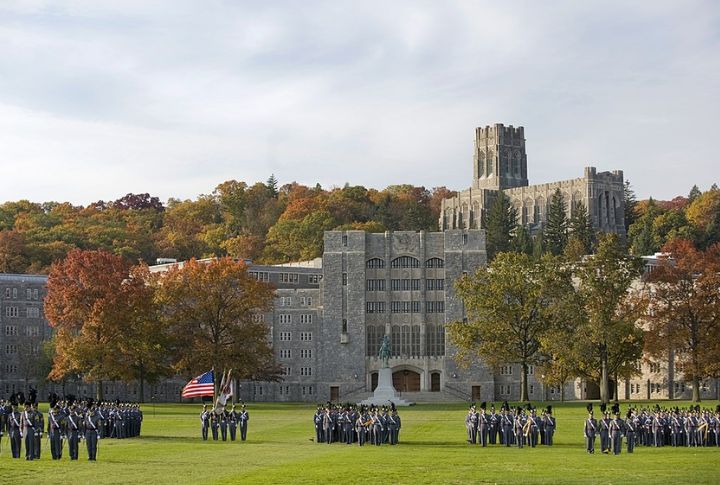
Yearly Tuition Fees: Fully funded
Employment Rate: 100%
At USMA, cadets receive one of the most prestigious educations in the world—completely tuition-free. That means no student loans, no financial burden, and full coverage of tuition, housing, meals, medical care, and even a monthly stipend. They study a rigorous curriculum that blends science, language, international relations, leadership, liberal arts, and military strategy. In return for this education, cadets commit to serving in the U.S. Army after graduation.

